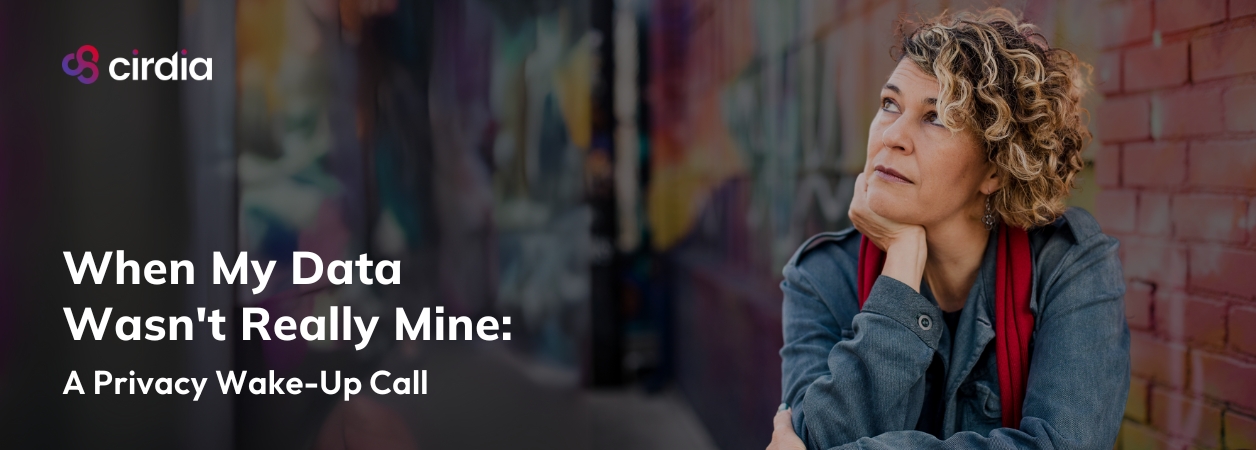I can still feel the frustration washing over me like it was yesterday. Three years of meticulously tracked workouts—gone. Just like that.
Like many people trying to stay fit, I'd been working with a personal trainer who used a specialized app to track my progress. Every session, every weight, every rep—I diligently entered it all. My fitness device synced with the app, creating a comprehensive picture of my fitness journey. I even uploaded progress photos, creating a visual timeline of my transformation.
The app became my fitness memory. I could look back and see how much I'd improved on my deadlifts over time, when I'd hit my personal bests, which exercises I struggled with consistently. It wasn't just data—it was a record of my hard work, my discipline, my progress.
The Day My Fitness History Vanished
Then came the moment when I felt ready to continue my fitness journey independently. I'd learned the patterns, understood my body better, and felt confident in designing my own workouts. It was a proud moment of growth—until I discovered the hidden cost.
When I stopped working with my trainer, I didn't just lose the ongoing support and expertise. I lost my entire fitness history. Every single workout I had manually entered, every achievement I had celebrated, every photo documenting my progress—all of it was either locked away on someone else's server or simply deleted.
Just like that, years of my fitness data had evaporated.
The loss was more than just inconvenient. Without my history, I had no reference points. How much weight had I been lifting for chest press? What was my record for split-squats? Which variations of exercises worked best for my body? I was essentially starting from scratch, my digital fitness memory wiped clean.
When Your Data Isn't Really Yours
That's when it really hit me: despite all the time I'd spent inputting this data, despite this being information about my body generated by my activities, I had no actual ownership of it. The app had never been designed for me to truly own my information—it was designed to keep me tethered to their ecosystem.
This experience wasn't isolated. Around the same time, I was looking for ways to stay connected with my sister-in-law—a sister of my heart, really—and a nurse who lived in a different part of the world. We wanted to find a way to work out together despite the distance, to motivate each other and share our fitness journeys.
I suggested we use a popular fitness wearable and platform that would let us share activities and cheer each other on remotely. Her response stopped me in my tracks: "I'd love to work out with you virtually, but I'm not comfortable with a company storing and selling my biometric data. Isn't there another way we could connect around fitness?"
Her concern wasn't paranoia—it was prescient. She understood something that had become painfully clear to me: our most intimate biological data has become just another commodity to be extracted, stored, and monetized by companies who see us primarily as data sources rather than people.
Heart rate, sleep patterns, workout history, stress levels, body temperature and even ovulation cycles—these aren't just numbers. They're deeply personal insights into our physical and mental health. They can reveal medical conditions, emotional states, and behavioral patterns. Yet the privacy policies governing this data are deliberately vague about how it's used, shared, and monetized.
The more I thought about it, the more I felt a fundamental disconnect between how personal this data is and how impersonally it's treated. This wasn't just a technical problem—it was an ethical one.
Building a Different Approach
That's a big part of why I started Cirdia. I wanted to create wellness technology built on a different foundation—one where your data stays on your device by default,and when you back it up, you back it up to your private data space. I wanted a system where sharing happens only when you explicitly choose it, and one that is designed to serve you rather than extract value from you.
With Cirdia, your data truly remains yours. Everything captured by your wearable or entered manually belongs to you and stays accessible to you—even if you decide to change how you use our system in the future. We don't hold your historical information hostage or suddenly make it inaccessible if your relationship with us changes. Your biometric history is exactly that: yours.
While we'll offer premium features through subscription (we are building software after all, and continuous development requires sustainable funding), we fundamentally reject the model where your own data becomes unusable unless you pay. The data you generate and input will always remain accessible and exportable, regardless of your subscription status.
Privacy isn't just a feature we've added—it's fundamental to how we've designed our entire system. Because your heartbeat, your sleep patterns, your workout history—they're not just data points. They're parts of your life, your health, your story. And we believe they should remain firmly in your control.
In my next post, I'll share how moving away from my wellness community in Colorado taught me about the critical role community plays in maintaining well-being, and how that insight shapes Cirdia's approach to community ownership.
